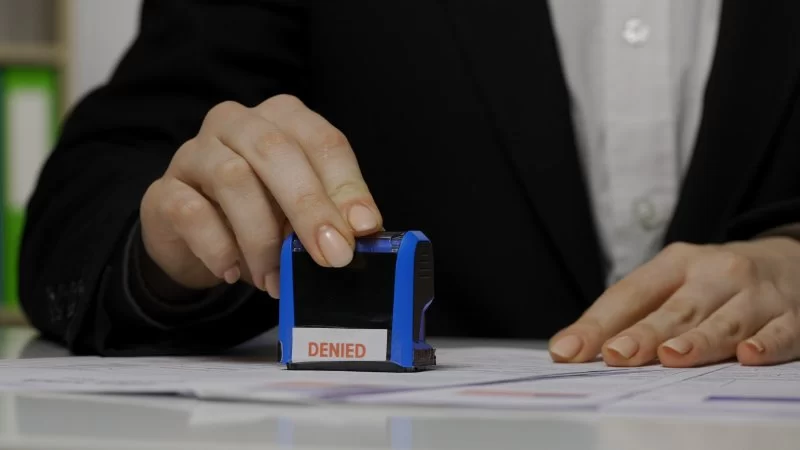Common Reasons Immigration Applications Are Denied and How to Avoid Them
Applying for immigration to the United States is an exciting yet challenging journey. Whether you're applying for a visa, green card, or citizenship, the process can be overwhelming. Unfortunately, many applicants face the frustrating reality of having their applications denied. Understanding the most common reasons for these denials and how to avoid them is crucial for anyone going through the immigration process. In this article, we’ll explore these reasons and offer practical tips for making your application as strong as possible.
1. Incomplete or Incorrect Documentation
One of the primary reasons immigration applications are denied is due to incomplete or incorrect documentation. The U.S. Citizenship and Immigration Services (USCIS) requires a specific set of documents for each type of application, and missing even one can result in a delay or denial. For example, an application for a green card might require proof of employment, marriage certificates, medical exams, or proof of financial support. Failing to provide any of these documents can result in an automatic denial.
How to Avoid This: Carefully review the application requirements and double-check that you have included all necessary documents. It's also a good idea to have your documentation organized and to keep copies of everything you submit. If you're unsure about the requirements, consider consulting with an immigration lawyer to ensure that you’re following the guidelines correctly.
2. Failure to Meet Eligibility Requirements
Each immigration application has specific eligibility requirements. These can include factors such as employment status, family relationships, or criminal history. For instance, applying for a work visa requires proof of employment in the U.S., while applying for a family-based visa requires a qualifying relationship with a U.S. citizen or permanent resident. If you don’t meet the eligibility criteria for the application you’re submitting, your request is likely to be denied.
How to Avoid This: Carefully assess whether you meet the eligibility criteria before submitting your application. If you have a complicated case, such as a previous criminal record or an expired visa, it’s wise to seek legal advice. An immigration lawyer can help you understand whether your situation fits the requirements and how best to proceed.
3. Inconsistent or False Information
Providing inconsistent or false information on your application can lead to a denial or even legal consequences. Whether intentional or accidental, inconsistencies in your immigration history, such as incorrect names, dates, or places of birth, can raise red flags. Additionally, deliberately providing false information is considered immigration fraud and can result in a permanent ban from the U.S.
How to Avoid This: Always provide accurate and honest information on your application. If you realize you've made a mistake or discovered an inconsistency, contact USCIS as soon as possible to correct it. It's better to fix errors proactively than risk a denial due to false information.
4. Missing Deadlines
Deadlines are crucial in the immigration process. Whether it’s submitting additional documents after an interview or responding to a Request for Evidence (RFE), missing a deadline can cause significant delays or result in an outright denial of your application. USCIS is strict about deadlines, and in many cases, they will not grant extensions without a valid reason.
How to Avoid This: Stay organized and keep track of important dates, such as filing deadlines and interview appointments. Setting reminders on your phone or in a calendar app can help you manage your time effectively. If you’re unable to meet a deadline, contact USCIS immediately to discuss possible options.
5. Previous Immigration Violations
If you have a history of immigration violations, such as overstaying a visa, working without authorization, or entering the U.S. illegally, it can severely affect your chances of approval. Immigration violations often result in disqualifications or require you to apply for a waiver before proceeding with your application.
How to Avoid This: If you’ve had previous immigration violations, it’s crucial to address them before applying. An immigration lawyer can help you navigate any issues related to your past violations and guide you through the process of applying for a waiver if necessary. The more proactive you are about resolving any past issues, the better your chances for a successful application.
6. Health or Medical Issues
In some cases, health or medical issues can lead to the denial of an immigration application. Applicants are typically required to undergo medical exams to determine if they have any contagious diseases or health conditions that could pose a risk to public safety. If you have a medical condition that is considered a health risk, it may result in a denial.
How to Avoid This: Ensure that you complete the required medical examinations by an approved physician. If you have a medical condition that could complicate your application, it’s important to provide full disclosure and consult with your physician. In some cases, waivers or special considerations may be available.
7. Failure to Attend Required Interviews
Many immigration processes require applicants to attend interviews. Missing or failing to prepare for these interviews can result in a denial. Interviews are an essential part of the process as they help USCIS verify your identity and determine the legitimacy of your application.
How to Avoid This: If you’re scheduled for an interview, make sure to attend on the designated date. If you’re unable to attend, inform USCIS as soon as possible and request a rescheduled appointment. Proper preparation for your interview will also increase your chances of success.
8. Financial Instability
For certain types of immigration applications, particularly family-based visas or green card applications, you may need to demonstrate financial stability to prove that you won’t become a public charge. If you fail to meet the financial requirements, your application may be denied.
How to Avoid This: Provide clear and accurate financial documents, such as tax returns, pay stubs, or bank statements, to show that you meet the financial requirements. If you’re concerned about your financial situation, consider seeking help from a financial advisor or immigration lawyer to ensure your application is complete and meets the requirements.
9. Seeking Professional Help: The Role of Immigration Lawyers
Immigration law is complex, and even small mistakes can result in delays or denials. Working with an experienced immigration lawyer can make a significant difference in the success of your application. Lawyers can help you understand the requirements, avoid common pitfalls, and ensure that all documentation is submitted accurately and on time.
How to Avoid This: If you’re unsure about the immigration process or have a complicated case, don’t hesitate to consult an immigration lawyer. At Fred Miller Lawyer, we specialize in providing personalized immigration services to ensure your application is as strong as possible. With expert advice, you’ll have a better chance of avoiding the common mistakes that lead to denials.


 ryan schneer
ryan schneer 1345 6th ave ny ny
1345 6th ave ny ny 20 commerce dr cranford nj 07016
20 commerce dr cranford nj 07016 brandon campbell attorney
brandon campbell attorney shewmaker & lewis llc
shewmaker & lewis llc mcdonald worley pc reviews
mcdonald worley pc reviews